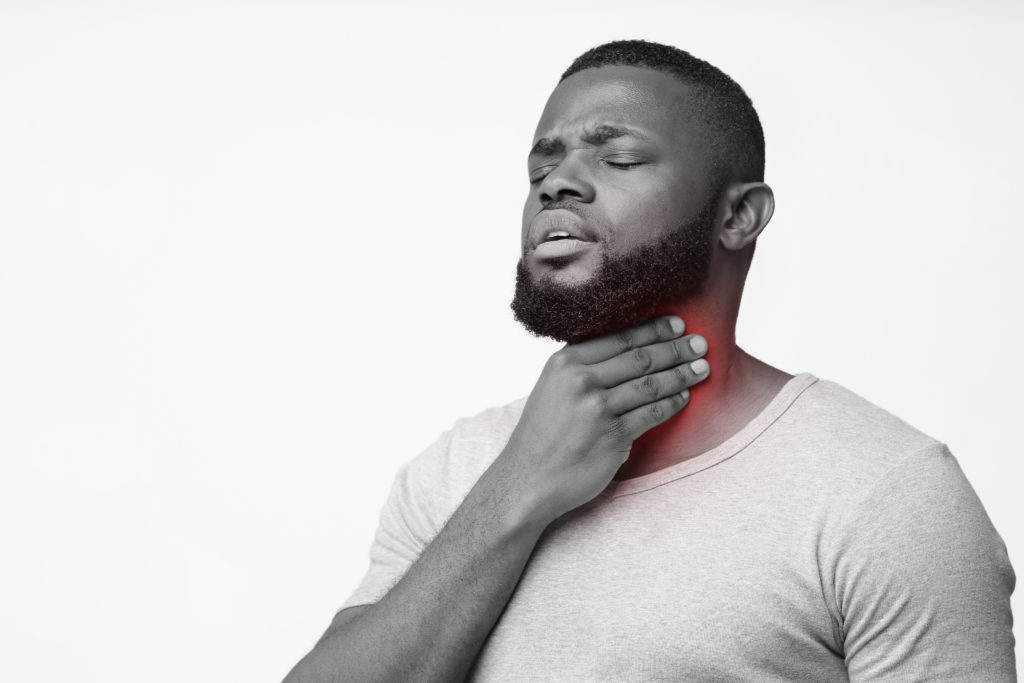
A cough is an important defensive reflex that helps protect your body from irritants like:
- mucus
- smoke
- allergens, such as dust, mold, and pollen
Coughing is a symptom of many illnesses and conditions. Sometimes, the characteristics of your cough can give you a clue to its cause. Here are the common coughs and what they mean:
Dry Cough
There’s actually no specific medical criteria to classify a dry cough and a wet cough, explains David Cutler, M.D., a family medicine physician at Providence Saint John’s Health Center in Santa Monica, Calif. That’s because it’s open to interpretation. “Your wet cough might seem like a dry cough to me,” he says.
But, in general, a dry cough means you’re coughing but nothing is coming up, like phlegm or mucus, says Purvi Parikh, M.D., an allergist with Allergy & Asthma Network. If you’re regularly producing phlegm when you cough, you’re likely dealing with a wet cough.
Many things can cause a dry cough, including allergies and being indoors with dry air all day (cue the humidifier!), Dr. Holmes says. Any irritation in your throat can also cause a dry cough, she says. Postnasal drip, gastroesophageal reflux (GERD), asthma, and smoking are also common triggers.
What does a dry cough feel like?
In general, it can feel like any cough without the phlegm. You can also feel like you’re having dryness, a tickle, or tightness in your chest, Dr. Parikh says.
Ultimately, it feels a lot like your lungs are irritated, says Aline M. Holmes, D.N.P., R.N., a clinical associate professor at Rutgers University School of Nursing. “The dry cough people are often experiencing with coronavirus is a very deep, low cough from the bottom of the lungs,” she explains.
If a dry cough continues to persist more than three weeks, you may need to have your physician look at it.
RELATED: 5 Reasons Your Cough Is Still Around After Your Cold Is Gone
Wet Cough
A wet cough, also called a productive cough, is a cough that typically brings up mucus.
Wet coughs sound wet because your body is pushing mucus out of your respiratory system, which includes your:
- throat
- nose
- airways
- lungs
If you have a wet cough, you may feel like there’s something stuck or dripping at the back of your throat or in your chest. Some of your coughs will bring mucus into your mouth.
Wet coughs can be acute and last less than 3 weeks or chronic and last longer than 8 weeks in adults or 4 weeks in children. The duration of a cough may be a big clue as to its cause.
RELATED: 4 Immune-Boosting Foods To Prepare For Cold Season
Barking Cough
A barking cough sounds like the barking of a seal. The barking sound results from inflammation of the upper airways, particularly the airways surrounding the larynx. According to the National Institutes of Health, a barking cough is also referred to as a croup cough because it is characteristic of croup.
Croup is a viral infection that causes swelling around the bronchial tubes, trachea, and larynx. As a result, patients have difficulty breathing and develop a severe cough. The inflammation and cough may be so severe that the patient may gasp for air or even turn blue.
Most patients recover from croup at home without medical treatment. In severe cases, doctors prescribe anti-inflammatories such as steroids to reduce the swelling of the airways.
Whooping Cough
A whooping cough is a violent cough that causes the lungs to expel so much oxygen that you gasp or "whoop" between coughs. Whooping cough is so characteristic of pertussis, a bacterial infection, that it has become the common name for the disease. However, other conditions can also cause a "whooping" cough such as pneumonia, severe asthma attacks, emphysema, chronic obstructive pulmonary disease (COPD) and tuberculosis.
Most of the causes of a whooping cough are serious enough to justify an exam by a certified provider to diagnose the cause of the cough and prescribe a course of treatment.
In the case of pertussis, prevention is the best strategy to avoid contracting the infection. A whooping cough vaccine is available and is recommended as part of a standard course of vaccinations for children.
RELATED: Why Your Cough Isn't Going Away (And How To Stop It)
Burning Cough
If you experience burning in your throat or chest as a result of your cough, you may be coughing up stomach acid. This is a symptom of gastroesophageal reflux disease, also called GERD, acid reflux or heartburn. In GERD, the muscle at the base of the esophagus fails to seal the stomach completely, thereby allowing stomach acid to flow up the esophagus.
The stomach acid irritates the esophagus. This irritation is felt as a burning sensation and can trigger a cough that can push the stomach acid up the throat and into the mouth and nose. In severe cases of GERD, the irritation and cough may even trigger regurgitation or vomiting.
Over-the-counter medications are available to control GERD. Most of these medications are referred to as "acid reducers" because they reduce the volume of acid produced by the stomach. Additionally, antacids can neutralize the acid in the stomach so that the acid is less irritating to the esophagus.
Serious cases of GERD that result in regurgitation or vomiting may require a visit to the doctor.
Phlegmy Coughs
Phlegm is slightly different from mucus. Mucus is produced by the body to protect tissues from foreign particles and disease-causing microbes and to prevent tissues from drying out. Phlegm is mucus that has done its job. That is, phlegm is mucus with foreign particles, microbes and immune system cells embedded in it.
Mucus is typically clear since it is composed primarily of water. Phlegm can take on many colors that can indicate what your body is battling:
- Yellow or green phlegm usually indicates a viral or bacterial infection. The color comes from white blood cells in the phlegm.
- Pink phlegm comes from fresh blood.
- Brown phlegm comes from old blood.
- Black phlegm usually results from particulates in your lungs from smoke or coal dust.
A common cause of phlegmy coughs is bronchitis. Bronchitis is caused by an infection in the lungs. Although it is easy to read too much into the color of the phlegm, yellowish phlegm is usually suggestive of a viral infection, while green phlegm usually suggests that the infection is bacterial. In either case, bronchitis will often clear up on its own with proper home care, including drinking fluids, using a humidifier, and taking expectorants to loosen and hydrate phlegm so it can be coughed up.
RELATED: 5 Reasons Your Cough Is Still Around After Your Cold Is Gone
Serious Coughs
Some coughs signify serious problems and may require medical attention from a doctor. Some signs that a cough is serious include:
Gasping or difficulty breathing
- Pale or blue skin from lack of oxygen
- Bloody mucus or phlegm
- High or persistent fever
- Cough that lasts longer than a few weeks
- Whooping or wheezing sounds
- Frothy pink phlegm
- Persistent cough that interferes with sleep
While these symptoms do not necessarily mean that you are suffering from a serious illness, they sometimes accompany life-threatening conditions such as pneumonia, congestive heart failure, lung cancer, pulmonary embolism or tuberculosis. Visiting a doctor for examination and diagnosis can help to identify, or eliminate, these conditions as a cause of your cough.








